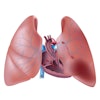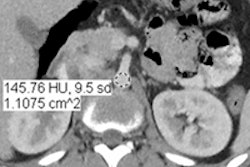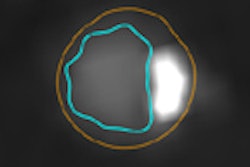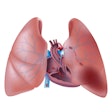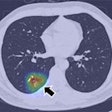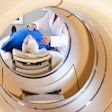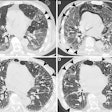Monday, November 26 | 11:00 a.m.-11:10 a.m. | SSC05-04 | Room E353A
Radiation doses from CT enterography can be dramatically reduced with the use of iterative reconstruction. Find out how model-based iterative reconstruction (MBIR) came out on top in this Monday scientific session.Advanced reconstruction schemes such as MBIR (GE Healthcare) do better at maintaining image quality at ultralow doses than earlier algorithms such as adaptive statistical iterative reconstruction (ASIR, GE), according to Michigan researchers.
"Cumulative radiation doses from repeated CT enterography in patients with inflammatory bowel disease can be very high, so efforts to reduce radiation dose with new dose reduction techniques are needed," explained Dr. Ravi Kaza from the University of Michigan.
To compare the two schemes, her group looked at 21 patients with a body mass index of 26 or less using 80 kV with both MBIR and ASIR. On a scale of 1 to 5, with 5 representing excellent image quality, they found a statistically significant increase in the mean image score for exams reconstructed with MBIR versus those reconstructed with ASIR. Scores were 2.5 for ASIR versus 3.2 for MBIR for bowel wall, 2.9 versus 3.4 for mesenteric vessels, 2.2 versus 3 for liver, and 2.5 versus 3.1 for overall image adequacy, at a mean effective dose of 1.3 ± 0.5 mSv.
"Enhanced noise suppression of newer iterative image reconstruction techniques provides diagnostically adequate CT enterography examinations at very low radiation dose," Kaza concluded.
